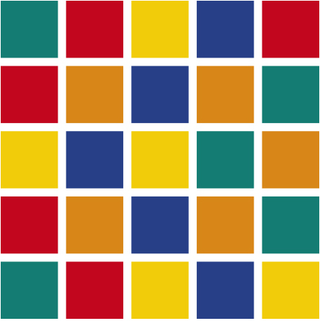 |
|---|
The Democratic Union of the Roma of Romania (Romanian : Uniunea Democrata a Romilor din Romania, UDRR) was an ethnic minority political party in Romania representing the Romani community.
 |
|---|
The Democratic Union of the Roma of Romania (Romanian : Uniunea Democrata a Romilor din Romania, UDRR) was an ethnic minority political party in Romania representing the Romani community.
The UDRR contested the 1990 general elections, and despite receiving only 0.21% of the vote, it won a single seat in the Chamber of Deputies. [1] In the Senate elections it received 0.14% of the vote, failing to win a seat.
| Election | Chamber of Deputies | Senate | ||||
|---|---|---|---|---|---|---|
| Votes | % | Seats | Votes | % | Seats | |
| 1990 | 29,162 | 0.21 | 1 | 19,847 | 0.14 | 0 |

Romania elects on a national level a head of state – the president – and a legislature. The president is elected for a five-year term by the people. The Romanian Parliament has two chambers. The Chamber of Deputies has currently 330 members, elected for a four-year term by party-list proportional representation on closed lists. The Senate has currently 136 members, elected for a four-year term by party-list proportional representation on closed lists.

The Romanian Constitution, under the conditions imposed by the Electoral Law, provides seats in the Chamber of Deputies for the party and cultural association of ethnic minorities in Romania. Minority parties and associations are exempt from the electoral threshold, and are guaranteed a seat so long as they earn at least 10% of the vote that was required for the last party eligible to earn a seat through the threshold.
The Romanian National Unity Party was a nationalist political party in Romania between 1990 and 2006.

Legislative elections were held in Romania on 30 November 2008. The Democratic Liberal Party (PDL) won three more seats than PSD in the Chamber of Deputies and the Senate, although the alliance headed by the Social Democratic Party (PSD) won more votes and a fractionally higher vote share. The two parties subsequently formed a governing coalition with Emil Boc of the PDL as Prime Minister.

General elections were held in Romania in December 1937. The Chamber of Deputies was elected on 20 December, whilst the Senate was elected in three stages on 22, 28 and 30 December. Voting was by universal male vote, making them the last elections held before female suffrage was introduced.

The Ecological Movement of Romania was a political party in Romania.

The Democratic Agrarian Party of Romania was a political party in Romania.

The Romanian Socialist Democratic Party was a political party in Romania. During its short existence, it was easily mistaken for Romanian Social Democratic Party.

The Democratic Party of Labour was a political party in Romania.

The National Reconstruction Party of Romania was a political party in Romania.

The Union of Armenians of Romania is an ethnic minority political party in Romania representing the Armenian community.

The Democratic Union of Slovaks and Czechs of Romania is an ethnic minority political party in Romania representing the Czech and Slovak communities.

The Union of the Ukrainians of Romania is an ethnic minority political party in Romania representing the Ukrainian community.

The Party of Young Free Democrats of Romania was a political party in Romania.

The Liberal Union–Brătianu was a political party in Romania.

The Community of the Lipovan Russians in Romania is an ethnic minority political party in Romania representing the Lipovan community.

The Hellenic Union of Romania is an ethnic minority political party in Romania representing the Greek community.

The Bulgarian Union of Banat–Romania is an ethnic minority political party in Romania representing the Bulgarian community.

The Republican Party was a political party in Romania. In 1993 it merged with two other parties to create the Party of Social Democracy in Romania (PSDR), although some dissatisfied members created a party with the same name later the same year.

The Federation of the Jewish Communities in Romania is an cultural association in Romania representing the Jewish community. The FCER has right to one seat in the Chamber of Deputies.